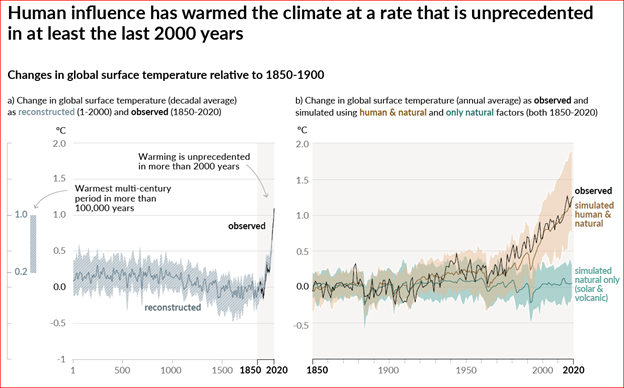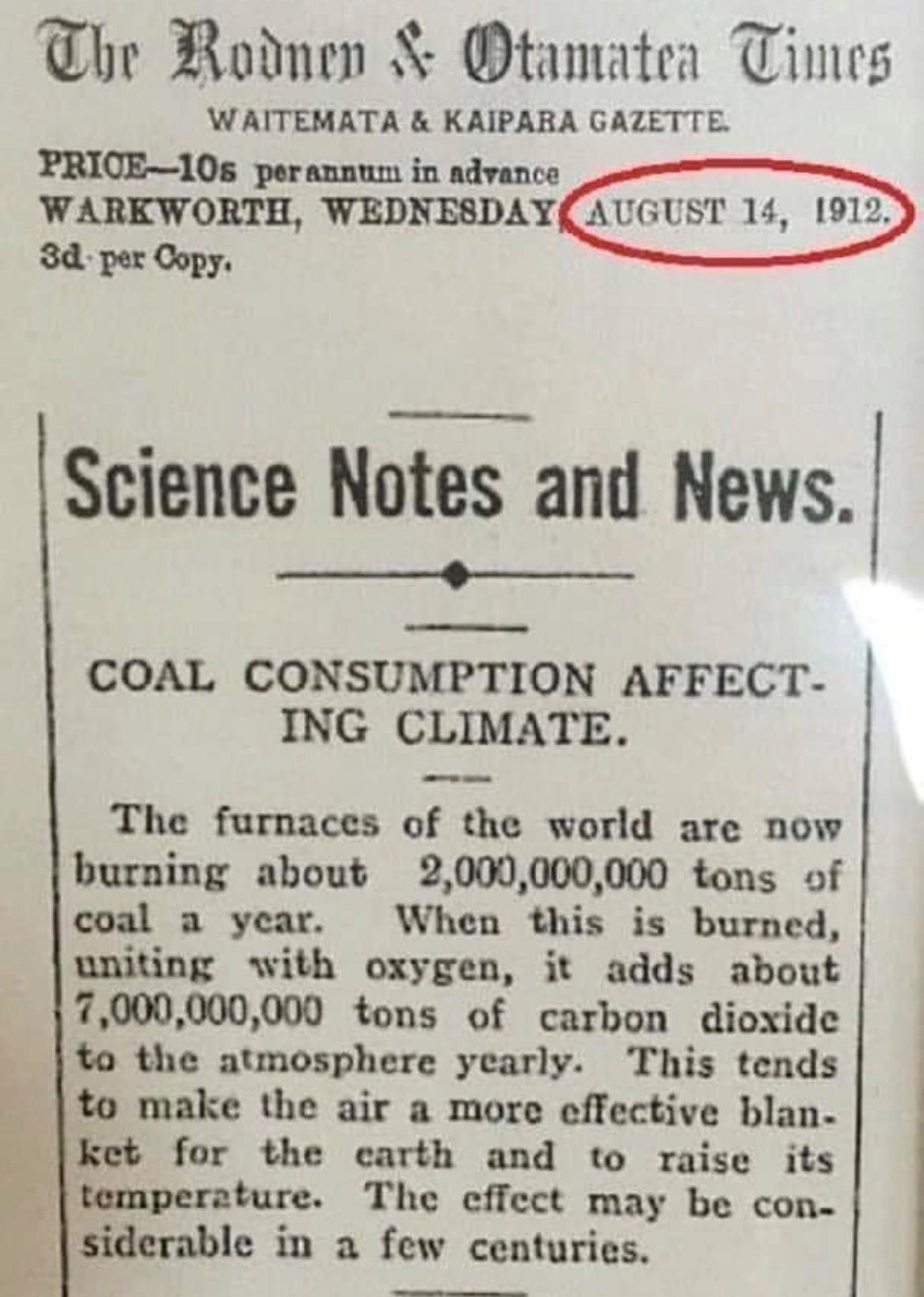A report from the UN Intergovernmental Panel on Climate Change triggered a code red alert on the impact of human-induced global warming.
The sixth assessment points out that the earth’s climate has warmed by 1.1 degrees Celsius (C) since the Industrial Revolution and immediate action is necessary to limit future temperature increases.
Antonio Guterres, UN chief, called the report a “code red for humanity”. He said “we can avert climate catastrophe. But … there is no time for delay and no room for excuses.”
The IPCC report, the Sixth Assessment Report, is summarized in a 42-page “Summary for Policy Makers”. The full assessment will run for thousands of pages when additional reports come out next year. The 5th assessment came out in 2013.
The key finding is: “It is unequivocal that human influence has warmed the atmosphere, ocean and land. Widespread and rapid changes in the atmosphere, ocean, cryosphere and biosphere have occurred.”
Surface temperatures have increased by 1.1 degrees C with land temperatures up 1.59 degrees and ocean up by 0.88.
Along with temperature increases, sea levels have risen by 0.20 meters. Further increases in sea levels are inevitable, even if emissions were halted today.
The rate of increase has accelerated. Current warming is unprecedented going back more than 2,000 years.

Source: Page 8, IPCC 6th assessment, Summary for Policy Makers
The speed of warming is about 2 times faster near polar regions with the Arctic reaching 3 times the rate of increase. Polar ice is shrinking and glaciers are disappearing.
Atmospheric concentrations of CO2 (carbon dioxide) are higher than at any time in at least 2 million years. CO2 is the most important greenhouse gas emission.
“It is virtually certain that hot extremes (including heatwaves) have become more frequent and more intense across most land regions since the 1950s … with high confidence that human-induced climate change is the main driver”. Page 10.
The report includes an assessment of likely future increases in temperature.
Total carbon emissions will determine the amount of future additional warming, according to the report. If carbon emissions are reduced starting immediately and reach zero by about 2050 temperature increases could be limited to less than 2 degrees C.
On the other hand, if greenhouse gas emissions do not flatten out until 2050 and then decrease after, a scenario known as SSP2-4.5 (intermediate), the global average temperature will increase by 2.1 to 3.5 C degrees.
The IPCC central estimate, a best guess, is 3 degrees C, a further increase from today of 2 degrees.
It is “extremely likely” that global warming of 2 degrees would be exceeded in the intermediate scenario, the authors state.
There was a substantial reaction to the report this week, but that interest will fade quickly.
The COP26 UN Climate Conference, in Glasgow, Scotland in November will rekindle the debate. Countries are required to update their NDCs, or nationally determined contribution, to limit emissions.
The urgency to act quickly can only grow if floods, heat waves and wildfires continue.

Source: Twitter - @rascality
Hilliard MacBeth
The opinions expressed in this report are the opinions of the author and readers should not assume they reflect the opinions or recommendations of Richardson Wealth or its affiliates. Assumptions, opinions and estimates constitute the author's judgment as of the date of this material and are subject to change without notice. We do not warrant the completeness or accuracy of this material, and it should not be relied upon as such. Before acting on any recommendation, you should consider whether it is suitable for your particular circumstances and, if necessary, seek professional advice. Past performance is not indicative of future results. The comments contained herein are general in nature and are not intended to be, nor should be construed to be, legal or tax advice to any particular individual. Accordingly, individuals should consult their own legal or tax advisors for advice with respect to the tax consequences to them, having regard to their own particular circumstances.. Richardson Wealth is a member of Canadian Investor Protection Fund. Richardson Wealth is a trademark by its respective owners used under license by Richardson Wealth.